|
|
|
|
|
|
|
|
No Arctic-science event is scheduled for today.
|
Media
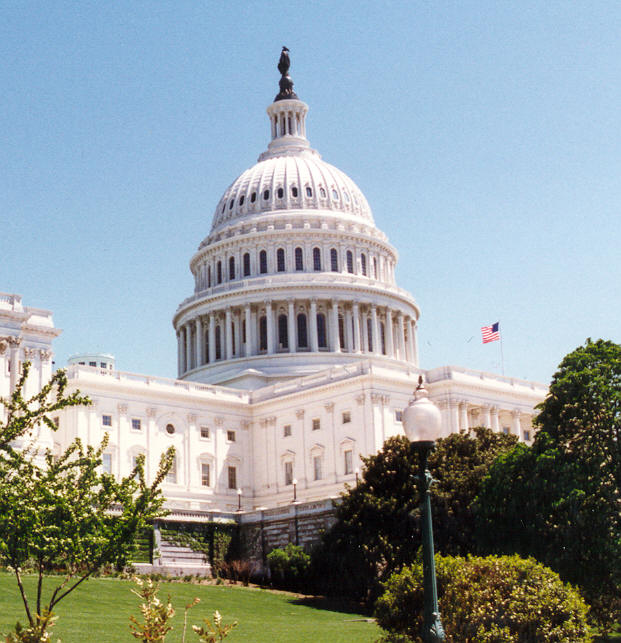 Congress Authorizes Six Icebreakers in Pentagon Bill. Congress Authorizes Six Icebreakers in Pentagon Bill. The nation's annual defense policy bill cleared Congress Wednesday with a pay raise for the troops and a provision allowing up to six icebreakers. If the icebreaker part sounds familiar, that's because last year's defense authorization bill had something similar, but it was stripped out before final passage. Alaska Public Radio
Experiments in Northern Alaska Seek to Improve Projections for a Changing Arctic. If you live in a place that's particularly vulnerable to climate change, you want to know specifics about what that change is going to look like in the future: how high can you expect storm surges to be? How much is the permafrost going to thaw, and how fast? A Department of Energy project in Alaska is trying to get the Arctic closer to some of those answers. On a spot of uneven tundra just a 15-minute drive from downtown Utqiaġvik, Alistair Rogers stands surveying his experimental domain: several short greenhouse-looking structures connected by a webbed plastic pathway. Alaska Public Media
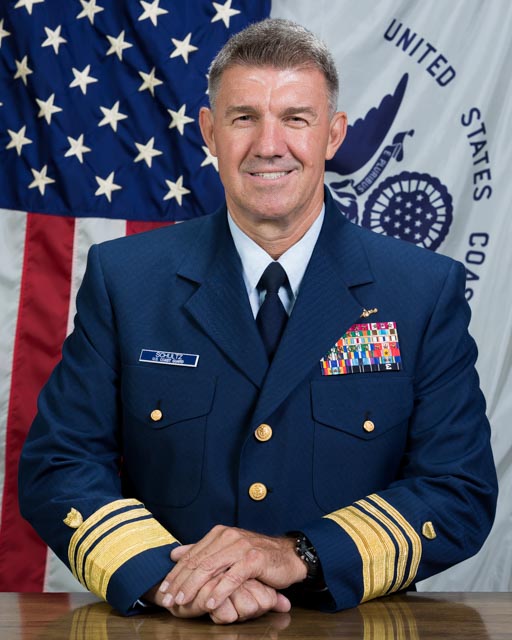 US Working on New Arctic Strategy. US Working on New Arctic Strategy. The United States could have a new Arctic strategy before the end of the year, according to Admiral Karl Schultz, the US Coast Guard (USCG) commandant. "We are working on a rewrite [of] the Arctic Strategy," Adm Schultz said on 1 August after a discussion about the state of the USCG at the Center for Strategic and International Studies (CSIS). IHS Jane
The Timescale of Precise Sea Ice Prediction in Northern Sea Route. Climate change has accelerated sea-ice retreat in the Arctic Ocean. This has various negative impacts including acidification of ocean water and potential contribution to severe winters in mid-latitude regions. However, it has also opened up new opportunities for commercial maritime navigation in summer (Fig. 1). The Northern Sea Route could reduce the navigational distance between Europe and Asia by about 40 percent, and accurate forecasting of sea-ice conditions has become a major research topic. Phys.org
UAF's Hinzman to Lead Arctic Science Committee. University of Alaska Fairbanks Vice Chancellor for Research Larry Hinzman was recently elected president of the International Arctic Science Committee. Hinzman was elected to the international science organization during the council's meeting last month in Davos, Switzerland. The IASC was formed in 1990 with the goal of increasing and encouraging collaboration in the Arctic research community. The nongovernmental organization includes members from 23 countries and works to tackle Arctic research projects that are too big for a single country to take on by itself or projects that require multi-country collaboration. Fairbanks Daily News-Miner
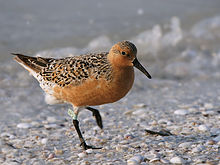 Mapping Endangered Red Knots' Remote Breeding Habitat. Mapping Endangered Red Knots' Remote Breeding Habitat. Red knots make an amazing journey from their breeding grounds in the Canadian Arctic to their winter habitat in South America and back each year. Their numbers have fallen precipitously in recent decades, and with such a broad range, determining what's behind the shorebird's decline is a huge challenge. A new study has determined that while there is plenty of breeding habitat to support today's population, climate change could pose a threat in the future. Science Daily
|
|
Future Events
** New this week ** DC Science Cafe: Polar Opposites, August 6, 2018 (Washington, DC USA). The Arctic. Antarctica. Two poles of one planet, the one that matters most. Join intrepid reporters Mike Lucibella and Eli Kintisch as they share their personal adventures in search of the uplifting, astonishing, and globally-consequential discoveries by scientists who trek to these extreme regions for their uniquely telling windows on an epic and ongoing planetary story. This event is hosted by the DC Science Café.
** New this week ** Coastlines & People (CoPe), application deadline is August 12, 2018
.
The National Science Foundation (NSF) is launching a new initiative on Coastlines and People (CoPe), that includes the Arctic region, and NSF seeks input on research priorities. Four simultaneous, three-day (Sept. 26-28, 2018) scoping sessions will be hosted by the University Cooperation for Atmospheric Research (UCAR) and facilitated by KnowInnovation on behalf of the NSF. Workshop sites include San Diego, Chicago, and Atlanta, with a fourth 'virtual' workshop held on Mountain Time. The scoping sessions aim to attract a variety of stakeholders including academic researchers, state, federal and local representatives working on important issues relating to coastal environments. Travel support is available to selected participants. The application deadline is midnight (local time) August 12, 2018. More information is available at https://coastlinesandpeople.org/
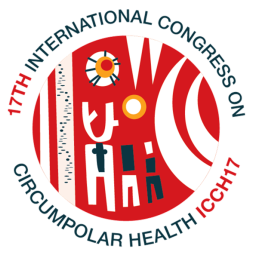 The ICCH congresses are held every third year in different locations in the circumpolar area and represent the largest scientific meetings worldwide on circumpolar health. The ICCH congresses serve as the primary source of information exchange and scholarly communication in issues relating to circumpolar health. More than 750 participants generally register and participate in each Congress, and more than 400 scientific papers or posters are usually presented.
** New this week ** The Causes and Consequences of a Rapidly Changing Arctic, August 16, 2018 (Washington, DC USA and via webinar). Earth's climate system is highly interconnected, meaning that changes to the global climate influence the United States climatically and economically. In much the same way as European and Asian financial markets affect the U.S. economy, changes to ice sheet mass and energy flows in the far reaches of the planet affect our climate. Life on Earth is sensitive to climate conditions; human society is especially susceptible due to the climate-vulnerable, complex, and often fragile systems that provide food, water, energy, and security. This event is part of the Climate Science Special Report (CSSR) Seminar Series by the US Global Change Research Program in partnership with the National Oceanic and Atmospheric Administration. The presenter will be Dr. Patrick C. Taylor, Climate Research Scientist, NASA Langley Research Center.
** New this week ** August NWS Alaska Climate Outlook Briefing, August 17, 2018 (Fairbanks, Alaska USA or via webinar). The tools and techniques for making monthly and season scale climate forecasts are rapidly changing, with the potential to provide useful forecasts at the month and longer range. We will review recent climate conditions around Alaska, review some forecast tools and finish up the Climate Prediction Center's forecast for September and the Fall/early winter season. This event is part of the National Oceanic and Atmospheric Administration Science Seminar Series.
** New this week ** The Fourth US National Climate Assessment: An Overview of Volume 1, August 28, 2018 (Washington, DC and via webinar). This event is part of the Climate Science Special Report (CSSR) Seminar Series by the US Global Change Research Program in partnership with the National Oceanic and Atmospheric Administration. New observations and new research have increased our understanding of past, current, and future climate change. The Fourth National Climate Assessment confirms prior assessments in concluding that the climate on our planet, including the United States, is changing, and changing rapidly. Observational evidence for a changing climate abounds, from the top of the atmosphere to the depths of the oceans. The speaker will be Donald J. Wuebbles, the Harry E. Preble Professor of Atmospheric Science at the University of Illinois.
UArctic Congress 2018, September 3-7, 2018 (Oulu and Helsinki, Finland). The UArctic Congress 2018 will bring together key UArctic meetings and a science conference into one single gathering, including business meetings of the Council of UArctic, Rectors' Forum, Student Forum, and Thematic Networks & UArctic Institutes Leadership Team. The Congress is an integral part of the Finland's Arctic Council chairmanship program, and open to the public. The event will highlight the themes and priorities of the Finnish chairmanship, including the goals of the United Nations' 2030 Agenda for Sustainable Development, and the Paris Agreement under the UN Framework Convention on Climate Change.
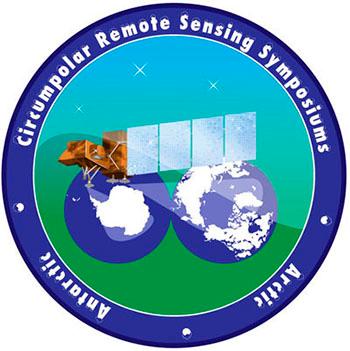
** New this week ** September NWS Alaska Climate Outlook Briefing, September 21, 2018 (Fairbanks, Alaska USA and via webinar). The tools and techniques for making monthly and season scale climate forecasts are rapidly changing, with the potential to provide useful forecasts at the month and longer range. We will review recent climate conditions around Alaska, review some forecast tools and finish up the Climate Prediction Center's forecast for October and the early winter season. This event is part of the National Oceanic and Atmospheric Administration Science Seminar Series.
Scientific Exploration of the Arctic and North Pacific (SEA-NorP), September 25-27, 2018 (Mt. Hood, Oregon USA). This workshop will include discussion of hypotheses that can be tested by scientific drilling in the region, the technology necessary to achieve those goals, ideal sites for drilling based on existing data, and where additional site survey data is needed. The goal of the workshop organizers is that multiple proposals will be initiated at the workshop, both for full cruise legs and for shorter, targeted expeditions around the following themes: ocean gateways, geohazards, volatile cycling, ice histories at transition zones, biosphere and climate.
The second Arctic Biodiversity Congress is hosted by the Conservation of Arctic Flora and Fauna (CAFF), the biodiversity working group of the Arctic Council, and the Ministry of the Environment, Finland. The second Arctic Biodiversity Congress will build on the success of the first Congress, held in 2014 in Trondheim, Norway, and will bring together scientists, policymakers government officials, Indigenous representatives, Traditional Knowledge holders, industry, non-governmental organizations, and others to promote the conservation and sustainable use of Arctic biodiversity.
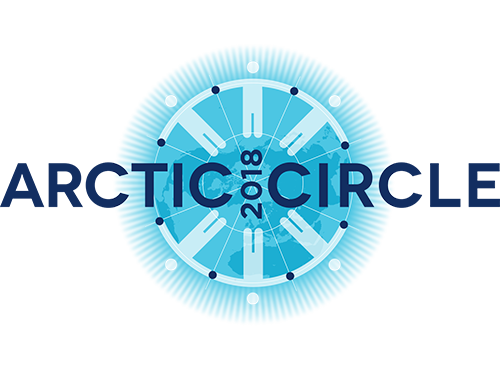 Arctic Circle Assembly, October 2018 (Reykjavik, Iceland). The annual Arctic Circle Assembly is the largest annual international gathering on the Arctic, attended by more than 2000 participants from 60 countries. It is attended by heads of states and governments, ministers, members of parliaments, officials, experts, scientists, entrepreneurs, business leaders, indigenous representatives, environmentalists, students, activists and others from the growing international community of partners and participants interested in the future of the Arctic. Arctic Circle Assembly, October 2018 (Reykjavik, Iceland). The annual Arctic Circle Assembly is the largest annual international gathering on the Arctic, attended by more than 2000 participants from 60 countries. It is attended by heads of states and governments, ministers, members of parliaments, officials, experts, scientists, entrepreneurs, business leaders, indigenous representatives, environmentalists, students, activists and others from the growing international community of partners and participants interested in the future of the Arctic.
Arctic Science Forum Associated with the 2nd Arctic Science Ministerial, October 25, 2018 (Berlin, Germany and via webcast). How vulnerable and how resilient are nature and the people of the Arctic region? How well do we understand the regional and global dynamics which are driving change in the Arctic? What impact will change in the Arctic have on us? These and other questions are the focus of this two-day conference. It will take interdisciplinary research in the Arctic to gain an understanding of past and future processes - a complex and cost-intensive venture. This makes an international network of Arctic research so important for delivering better results. Cooperation in research, the exchange of data, collaborative observation and monitoring schemes - international cooperation is imperative in research on the Arctic.
Only the Science Forum, on October 25th, will be webcast. The Arctic Ministerial, on October 26th, will NOT be webcast.
American Geophysical Union Fall meeting, December 10-14, 2018 (Washington, DC USA). The AGU 2018 Fall Meeting will mark another dynamic year of discovery in Earth and space science, serve as the advent of AGU's Centennial year, and provide a special opportunity to share our science with world  leaders in Washington, D.C. As the largest Earth and space science gathering in the world, the Fall Meeting places you in the center of a global community of scientists drawn from myriad fields of study whose work protects the health and welfare of people worldwide, spurs innovation, and informs decisions that are critical to the sustainability of the Earth.
** New this week ** ArcticNet: Annual Scientific Meeting 2018, December 10-14, 2018 (Ottawa, ON Canada). Canada's North is experiencing unprecedented change in its sea and terrestrial ice, permafrost and ecosystems under the triple pressures of climate change, industrialization and modernization. The impacts of these pressures can be seen on food and energy security, shipping, sovereignty, northern community health and well-being, and sustainable development and resource exploitation. All these issues have brought the North to the forefront of national and international agendas. Building on the success of its previous Annual Scientific Meetings and International Arctic Change Conferences, the Arctic Network of Centers of Excellence announces the 14th ArcticNet Annual Scientific Meeting.
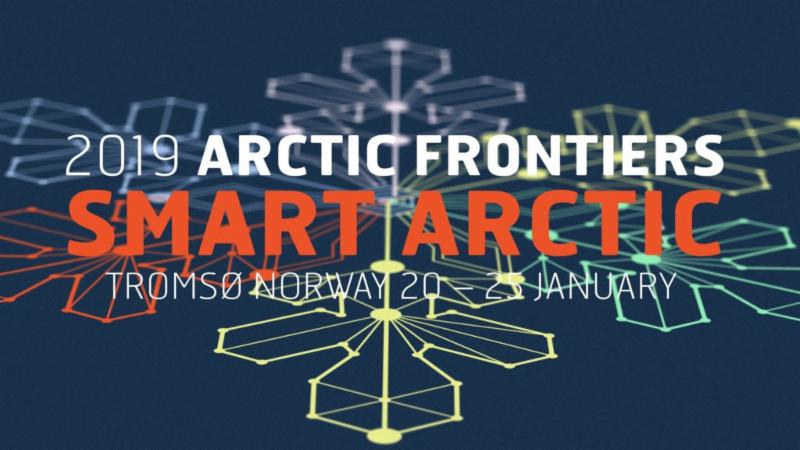 is a global scientific conference on economic, societal, and environmental sustainable growth. This year's theme will be "Smart Arctic," with a pan-arctic emphasis, and an effort to build new partnerships across nations, generations and ethnic groups. Arctic Frontiers provides a forum for dialogue and communication between science, government and industry. The plenary program will have five main sessions: State of the Arctic, Blue Growth, Smart Solutions, Bridging the Gap, and Arctic business prospects. An abstract-driven science program will address Plastics in the Ocean, the Future of Governance and Handling Vulnerability in Arctic Ecosystems, State of the Arctic and A Smart Arctic Future.
 of the AAG includes over 8,500 geographers converging from the U.S., Canada, and nearly 60 other countries in a typical year including geographers, GIS specialists, environmental scientists, and other leaders for the latest in research and applications in geography, sustainability, and GIScience. of the AAG includes over 8,500 geographers converging from the U.S., Canada, and nearly 60 other countries in a typical year including geographers, GIS specialists, environmental scientists, and other leaders for the latest in research and applications in geography, sustainability, and GIScience.
|
|

  
4350 N. Fairfax Drive, Suite 510
Arlington, VA 22203, USA
External links in this publication, and on the USARC's World Wide Web site ( www.arctic.gov) do not constitute endorsement by the US Arctic Research Commission of external Web sites or the information, products or services contained therein. For other than authorized activities, the USARC does not exercise any editorial control over the information you may find at these locations. These links are provided consistent with the stated purpose of this newsletter and the USARC Web site.
|
|
|
|
|
|
|
|
|
 Congress Authorizes Six Icebreakers in Pentagon Bill. The nation's annual defense policy bill cleared Congress Wednesday with a pay raise for the troops and a provision allowing up to six icebreakers. If the icebreaker part sounds familiar, that's because last year's defense authorization bill had something similar, but it was stripped out before final passage. Alaska Public Radio
Congress Authorizes Six Icebreakers in Pentagon Bill. The nation's annual defense policy bill cleared Congress Wednesday with a pay raise for the troops and a provision allowing up to six icebreakers. If the icebreaker part sounds familiar, that's because last year's defense authorization bill had something similar, but it was stripped out before final passage. Alaska Public Radio US Working on New Arctic Strategy. The United States could have a new Arctic strategy before the end of the year, according to Admiral Karl Schultz, the US Coast Guard (USCG) commandant. "We are working on a rewrite [of] the Arctic Strategy," Adm Schultz said on 1 August after a discussion about the state of the USCG at the Center for Strategic and International Studies (CSIS). IHS Jane
US Working on New Arctic Strategy. The United States could have a new Arctic strategy before the end of the year, according to Admiral Karl Schultz, the US Coast Guard (USCG) commandant. "We are working on a rewrite [of] the Arctic Strategy," Adm Schultz said on 1 August after a discussion about the state of the USCG at the Center for Strategic and International Studies (CSIS). IHS Jane Mapping Endangered Red Knots' Remote Breeding Habitat. Red knots make an amazing journey from their breeding grounds in the Canadian Arctic to their winter habitat in South America and back each year. Their numbers have fallen precipitously in recent decades, and with such a broad range, determining what's behind the shorebird's decline is a huge challenge. A new study has determined that while there is plenty of breeding habitat to support today's population, climate change could pose a threat in the future. Science Daily
Mapping Endangered Red Knots' Remote Breeding Habitat. Red knots make an amazing journey from their breeding grounds in the Canadian Arctic to their winter habitat in South America and back each year. Their numbers have fallen precipitously in recent decades, and with such a broad range, determining what's behind the shorebird's decline is a huge challenge. A new study has determined that while there is plenty of breeding habitat to support today's population, climate change could pose a threat in the future. Science Daily




